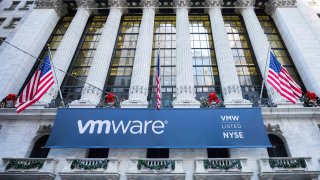
- These companies, on average, emit 47 times less greenhouse gas emissions than their Russell 1000 peers.
- They use 3.7 times more renewable energy.
- From last year, the share of companies tying executive compensation to environmental achievements jumped from 13% to about 27%.
Whether by force or desire, large corporations are paying closer attention to their environmental footprints and risks. Some, however, are moving more quickly toward the goal of limiting global warming than others.
New rules were recently proposed by the U.S. Securities and Exchange Commission to mandate reporting of both greenhouse gas emissions and climate risks. In addition, climate-related proposals now make up a majority of the record number of overall ESG shareholder resolutions.
While some companies are announcing commitments but making little progress toward them, others are walking the talk. A new report from Just Capital, which has measured corporate climate commitments in the past, lists corporate climate leaders in the Russell 1000 for 2022. This year it includes a new measurement incorporating commitments to the Science-Based Target of limiting total global warming to 1.5 degrees Celsius, the standard set by the Paris Agreement.
Get top local stories in Southern California delivered to you every morning. >Sign up for NBC LA's News Headlines newsletter.
As of now, just 7% of companies have committed to trying to meet that target.
The companies on Just's list on average emit 47 times less greenhouse gas emissions than their Russell 1000 peers and use 3.7 times more renewable energy. Mastercard and Microsoft are the only companies returning to the top 10 from last year, because of the new measure of the Science Based Target.
In addition to energy criteria, these companies also tie ESG performance to corporate compensation. From last year alone, the share of companies doing that jumped from 13% to about 27%.
Money Report
"I think it builds trust. One of the things that's changed this year to last is people are just more skeptical about claims that companies are making, greenwashing, etc. So consumers, and investors too, they want to be confident that companies are walking the talk," said Martin Whittaker, CEO of Just Capital.
Topping the list of Just Capital's "Top 10 for the Environment" is VMWare. The software company has a goal of reaching net-zero emissions by 2030 across operations and supply chains. About 80% of its energy consumption is currently classified as renewable.
Microsoft, which was one of just two companies also on the list last year, came in second. It has not only been a leader in corporate response to climate change with its carbon-negative and zero-waste targets but also focuses on community engagement and recently invested in agreements that allocate profits to developing renewable-energy sources in underserved communities.
Intuit rounds out the top three, thanks to its new goal of reducing global emissions by 50 times from its 2018 operational footprint over the next decade. It also supports renewable-energy options for its employees and collaborates on projects to innovate and finance high-impact climate solutions such as regenerative agriculture and refrigerant management.
Apple also made the list, thanks not only to its verified 1.5-degree target but also because of attention to suppliers' role in its environmental goals. It has committed to making its supply chain carbon neutral by 2030.
Mastercard also returned to the list for a second year by making an additional commitment to net zero by 2050 and tied it to its executive compensation, along with other ESG goals. The company received high marks for its commitment to developing sustainable products, as exemplified by its partnership with Conservation International to create the Wildlife Impact Card Program.
Others making the top 10 were Moody's, PayPal, Etsy, HP and PVH Corp., all of which committed to a verified 1.5-degree science based target.
"It's a level of seriousness about the intention and about a company's willingness to put its money where its mouth is. It builds trust," added Whittaker.






